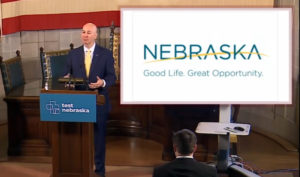 The Renewable Fuels Association is urging new EPA Administrator Michael Regan to “stay the course” on the Renewable Fuel Standard, as the policy faces renewed attacks from oil refiners.
The Renewable Fuels Association is urging new EPA Administrator Michael Regan to “stay the course” on the Renewable Fuel Standard, as the policy faces renewed attacks from oil refiners.
In a letter to Regan, RFA responds to several assertions about the RFS and RIN credits made by the American Fuel & Petrochemical Manufacturers (AFPM).
“Contrary to the refiners’ claim that higher RIN values are a sign the RFS program is ‘broken,’ elevated RIN values are, in fact, a sign that the RFS is finally being allowed to work as intended to transform the transportation fuels marketplace,” wrote RFA President and CEO Geoff Cooper. “Even with the variety of compliance options available to obligated refiners, AFPM is asking EPA to ‘adjust’ (i.e., waive) the renewable fuel volumes required in 2021 based on the false premise that the fuel market cannot absorb the required amounts of conventional renewable fuel. However, even if AFPM’s arguments were legitimate, the Courts have rejected past attempts by EPA to reduce annual renewable fuel obligations based on supposed market barriers to increased biofuel consumption. They would most assuredly do so again.”
Cooper asks Regan to ensure the upcoming 2021 and 2022 RVO proposed rules include conventional renewable fuel volumes of at least 15 billion gallons per year, as required by the statute, along with the court-ordered 500 million gallons illegally waived from the 2016 standards.
“As you begin your tenure as Administrator, we respectfully encourage you to stay the course on the Renewable Fuel Standard,” the letter concluded. “Even in the face of continued attempts by the oil refining industry to undermine the program, the RFS has been an incredibly effective tool for reducing greenhouse gas emissions, cutting criteria tailpipe pollutants, reducing petroleum imports, and boosting rural economies.”


 The
The  The
The 
 Michael Regan has officially been confirmed as Administrator of the U.S. Environmental Protection Agency with a 66-34 vote Wednesday by the U.S. Senate. Regan comes to EPA after serving as Secretary of the North Carolina Department of Environmental Quality.
Michael Regan has officially been confirmed as Administrator of the U.S. Environmental Protection Agency with a 66-34 vote Wednesday by the U.S. Senate. Regan comes to EPA after serving as Secretary of the North Carolina Department of Environmental Quality.
 The 37th
The 37th 
